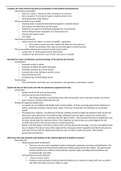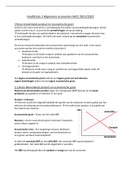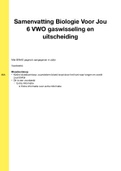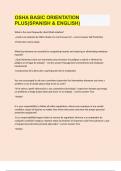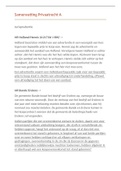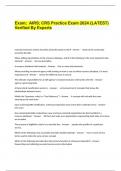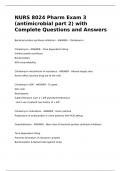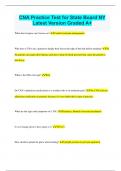Samenvatting
Samenvatting Alle mogelijke tentamenvragen + uitwerking in handige rijtjes
- Instelling
- Radboud Universiteit Nijmegen (RU)
Voor het tentamen worden 3 van deze vragen gebruikt, waarvan je er 2 moet beantwoorden. Dit zijn de uitwerkingen van alle vragen die ze mogelijk gaan stellen, met de uitwerking in handige rijtjes
[Meer zien]
